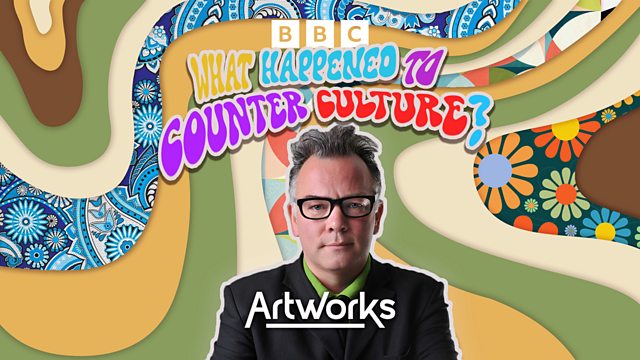4. Culture Clash
Comedian and author Stewart Lee explores the story and ideas of counter-culture since the end of the Second World War, and its uncertain status in today's digital world.
More than just a cultural trend – counter-culture became a social movement so powerful it shaped institutions, businesses, politics and the attitudes and aspirations of whole generations – including everything from haircuts to voting choices. In fact, it became so prevalent that it’s sometimes hard to remember how things have changed under its influence.
Comedian Stewart Lee presents a five-part series exploring the evolution and key ideas that have driven counter-culture from its beginnings with the Beats, folk and jazz in the 1950s, to its heights in the 1960s and 70s - including the hippies and the early tech-communalists, the new liberation movements and punk, to the 1980s and early 90s, where political power on both sides of the Atlantic pushed back against the values of the ‘permissive society’.
Talking to artists, musicians, writers, activists and historians, Stewart continues to the present day asking where we are now, in the digital age of social media silos and the so-called ‘culture wars’ – what’s happened to counter-culture? Was it co-opted, did it sell out? Or did its ideas of freedom and identity become so entrenched within mainstream culture it’s legacy has become unassailable? Or has it migrated politically to the Right? Throughout the series, the counter-culture is explored not only in terms of its history, extraordinary cultural output and key events – but also its deeper political and philosophical impact, it’s continued meaning for our own age.
In part 4, Culture Clash, the counter-culture generates opposition of its own - first in the courts and then from government. As the infamous Oz magazine trial puts the British underground press in the dock for ‘corrupting public morals’, the UK underground extends outside London to urban communities across the country, creating vibrant, alternative scenes in the 1970s and 80s, despite growing opposition from government.
Punk re-energises some of the same counter-cultural, DIY values as the hippie movement and joins with reggae, by now the music of Black British counter-culture, to form a powerful, multifaceted cultural challenge to mainstream politics and society.
But has the free individualism of the 1960s become hardened and monetised into a version of its own worst enemy - the economic self-centredness of the 1980s? This episode explores the pushback – a political ‘counter’ counter-culture - led by the Thatcher and Reagan governments respectively, explicitly opposing the ideas of the ‘permissive society’ and 1960s counter-culture in Britain and America. In the UK, following its success defeating the NUM, the Conservative government targets the alternative culture of ‘new age travellers’ culminating with the ‘Battle of the Beanfield’ in June 1985, one of the most violent police operations in British history.
Contributors include journalist and author John Harris, photographer Lisa Law, former Oz and IT journalist Jonathon Green, Geoffrey Robertson KC, musician Brian Eno, critic and author Paul Morley, historian Andy Beckett, founding member of Steel Pulse and director of the Black Music Research Unit Mykaell Riley, fashion designer and founding member of XR Clare Farrell, historian and journalist Simon Heffer, guitarist and songwriter Johnny Marr, and photographer Alan Lodge.
Presenter: Stewart Lee
Producer: Simon Hollis
A Brook Lapping production for ÃÛÑ¿´«Ã½ Radio 4
Last on
Broadcasts
- Thu 28 Aug 2025 09:00ÃÛÑ¿´«Ã½ Radio 4
- Sun 31 Aug 2025 23:00ÃÛÑ¿´«Ã½ Radio 4

